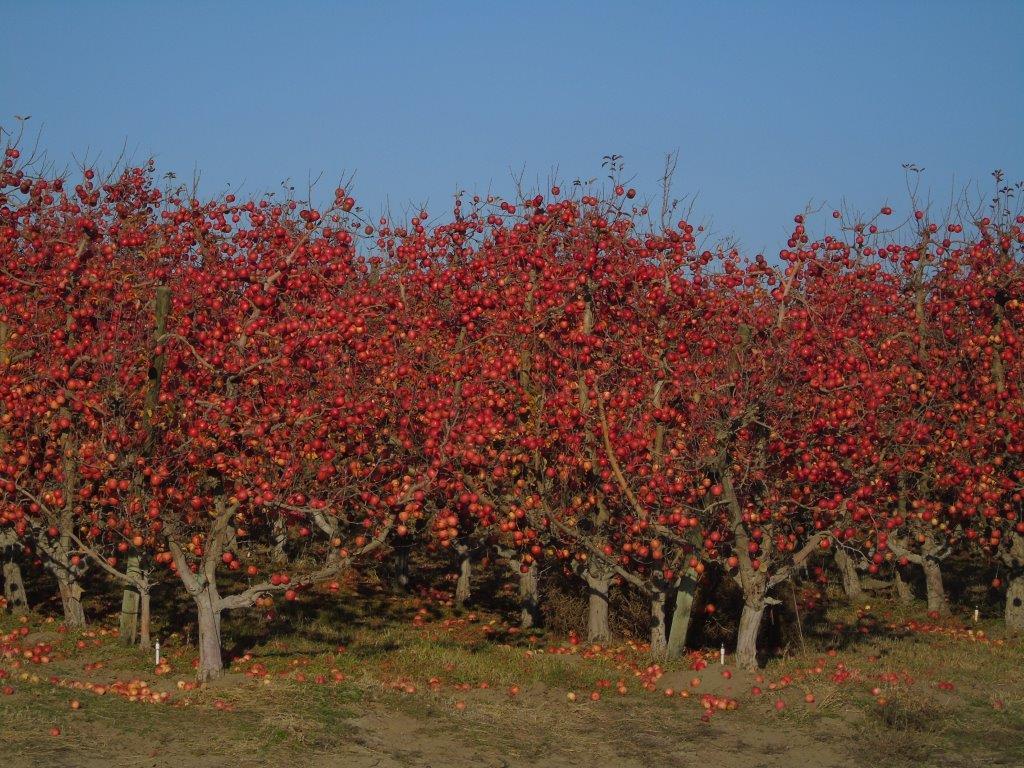
Apples remain unpicked in December 2019 in an orchard near Wallula, Washington.
Producer: CREDIT: Mike Denny
Fujis and Pink Ladies are some of the most valuable and last to ripen apple varieties in the Northwest.
And this winter there are huge swaths of them left unpicked in orchards east of the Cascades.
The trees’ leaves have dropped, and now with a blanket of snow, the tracts of unpicked acres glow red even from miles away. The left-behind fruit has many speculating: Trump’s tariffs? Unripe? Bugs? Foul weather?
The answer is a combination of two factors. There was a shortage of picking crews — the whole nation’s labor market is tight. Plus, an October freeze hammered Washington orchard managers, biting into thousands of still unharvested acres.
Experts say the Trump administration’s tariffs are not to blame for this one.
Morgan Rowe farms in the Yakima Valley, and lost about 600 bins — weighing about 900 pounds each — of his valuable Fujis to the cold.
He said he tried to save those apples. But many didn’t warm up enough to save after the first freezing night last fall.
“It’s just out of my hands,” Rowe said. “The weather is just not something that I can control. This, you know, chalk it up as a casino. It’s farming.”
Rowe said he and other farmers have knocked down some of the frozen fruit so it doesn’t damage the trees. But he said the loss is disheartening — especially after growing the fruit all year successfully, to lose it right at harvest time.
The U.S. Department of Agriculture's Farm Service Agency reports that although thousands of acres were lost to the weather in Washington, it didn't rise above a 30% total loss for the industry. That means farmers aren't eligible for federal financial aid. Though some may have lost as much as millions of dollars, according to Dwaine Schettler, with the USDA in Spokane.
These startling-red orchards, and farmers’ financial bleeding, are highlighted this week against this eastern Washington’s muted winter pallet.
Benefiting from this bonanza of abandoned fruit are coyotes and blackbilled magpies.
